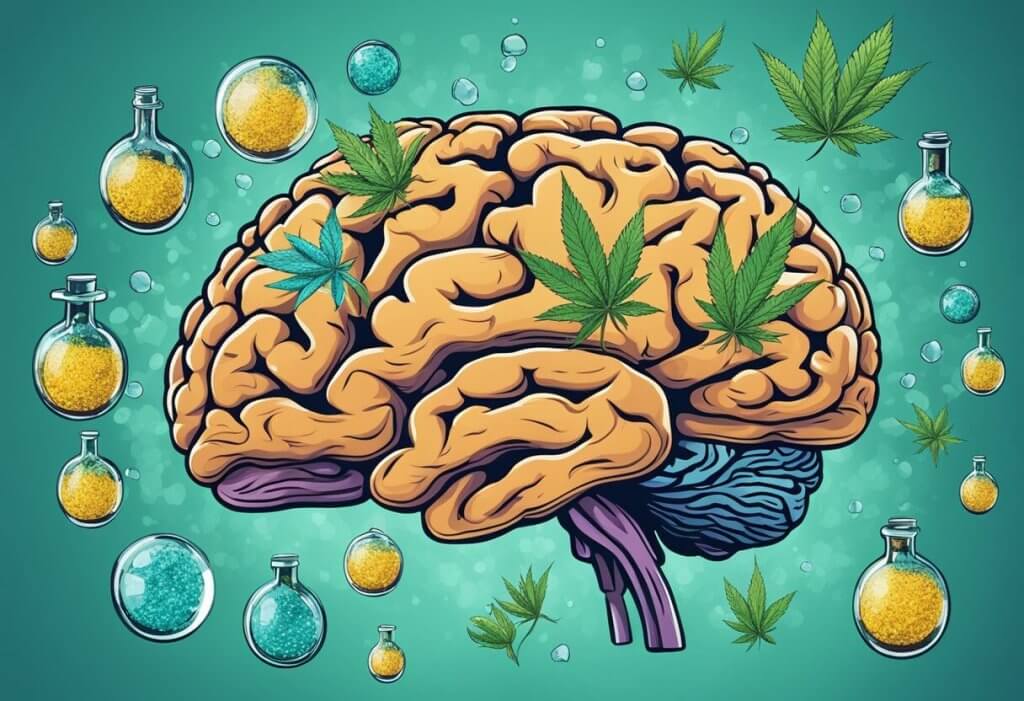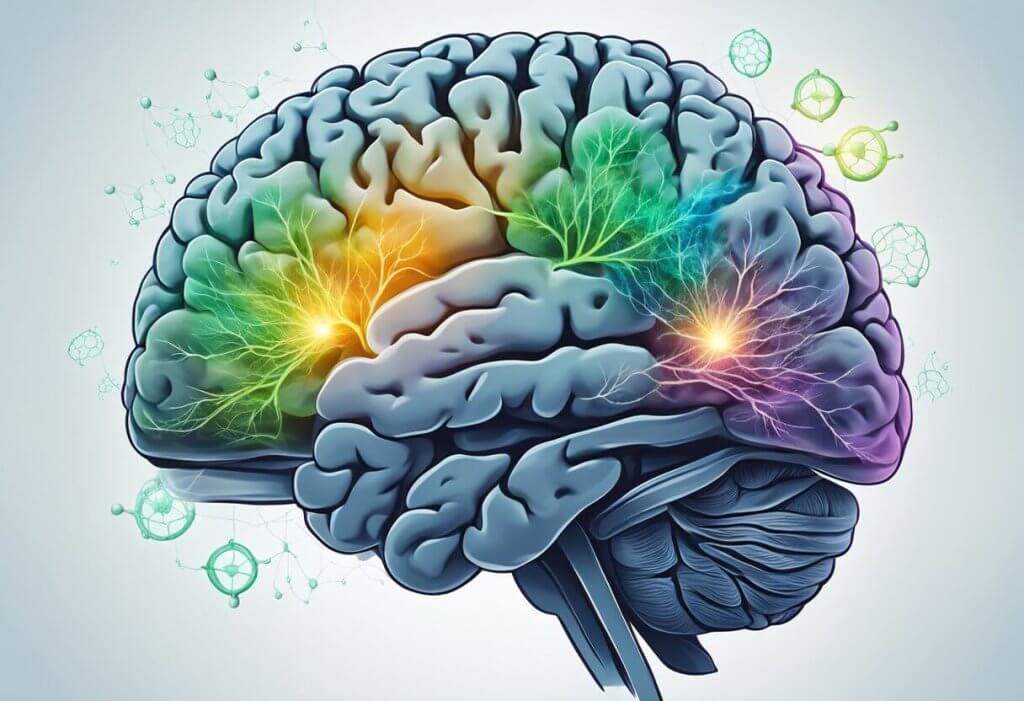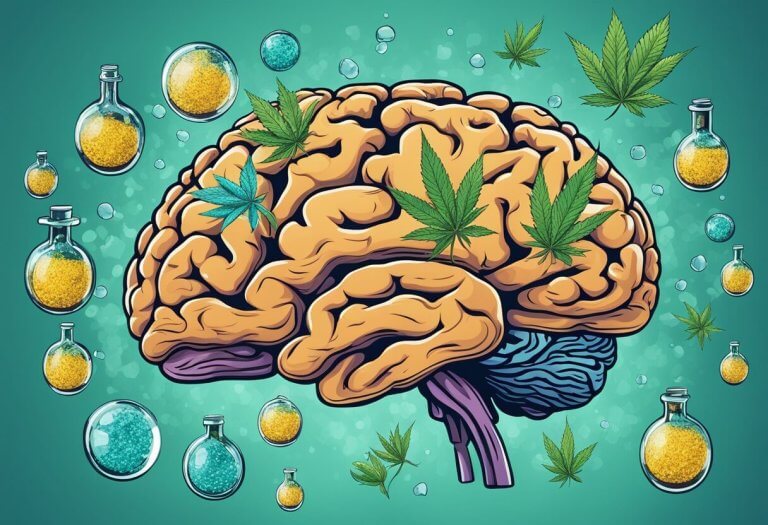Unveiling the Potential Cognitive Benefits
Disclaimer: The anecdotal benefits of CBD mentioned on this website are based on preliminary research and individual user experiences. All information presented here is not meant to substitute for or replace information from health care practitioners. Please click here for our full disclaimer, including side effects, FTC position, etc.
In a world where countless individuals struggle with memory issues, many are turning to CBD as a potential natural solution to enhance cognitive function and protect brain health.

Memory loss and cognitive decline are concerns that affect millions of people worldwide, whether due to aging, stress, or various neurological conditions. While conventional treatments often come with unwanted side effects, CBD has emerged as a promising alternative that has captured the attention of both the scientific community and those seeking natural ways to support their mental well-being.
CBD, or cannabidiol, is a non-psychoactive compound derived from the hemp plant that has been shown to offer a wide range of potential health benefits. Recent studies have explored the neuropsychiatric benefits of CBD, suggesting that it may positively impact brain function, including memory and learning. By interacting with the body’s endocannabinoid system, CBD may help reduce inflammation, promote neurogenesis (the growth of new brain cells), and protect against oxidative stress – all factors contributing to optimal brain health.
As more people discover CBD’s potential for memory and other cognitive functions, it’s essential to understand how this natural compound works and what the current research reveals. In this article, we’ll dive deeper into the science behind CBD’s neuropsychiatric benefits, explore the latest findings, and discuss how CBD might just be the key to unlocking a sharper, more resilient mind.
Key Takeaways
- CBD is being explored for its potential to enhance memory function and has been shown to interact with cognitive regulatory systems.
- Research is ongoing, with some studies suggesting positive effects on cognitive health, but widespread clinical consensus has yet to be reached.
- While interest in CBD’s effects on memory is high, it is important to approach claims with a critical eye and await robust scientific validation.
Understanding CBD and Its Effects on Memory

Exploring the complex relationship between CBD and memory reveals a fascinating interplay with the body’s internal systems. This narrative unveils how cannabidiol, a prominent substance found in cannabis, interacts with our cognitive capacities.
The Basics of CBD and Cannabis
Cannabidiol, or CBD, is one of over a hundred cannabinoids derived from the cannabis plant. Unlike its more infamous cousin, THC (delta-9-tetrahydrocannabinol), CBD does not produce psychoactive effects.
As such, it has become the focal point of many studies, particularly concerning its potential role in cognitive function and memory enhancement.
While marijuana is known for its high THC content, hemp is typically harvested for its CBD-rich profiles, becoming a popular base for CBD oil products.
The Endocannabinoid System and Cognition
The endocannabinoid system is a key modulator of brain function and cognition. This complex system involves receptors, endogenous cannabinoids, and enzymes that regulate various aspects of neurological health, including memory.
When CBD is introduced to the body, it interacts with this system, albeit not directly binding to the cannabinoid receptors like THC.
It’s the subtle influence of CBD on this system that has warranted interest regarding its potential as a cognitive enhancer and its ability to possibly mitigate memory loss.
One study of regular cannabis users found that those who used strains containing CBD had better recognition memory for words compared to those using cannabis without CBD. This indicates CBD may help protect memory in the context of cannabis use.
https://jcannabisresearch.biomedcentral.com/articles/10.1186/s42238-020-00034-0
CBD vs THC: Contrasting Cannabinoids
While both CBD and THC originate from the same plants—marijuana and hemp—their effects on cognition and memory are markedly different.
THC is commonly associated with impairing short-term memory, as it directly binds to CB1 and CB2 receptors in the endocannabinoid system.
Conversely, evidence hints that CBD may counteract these effects and offer protective or restorative benefits.
For example, studies suggest that CBD’s interaction with the system can sometimes improve focus and aid those with cognitive disorders, painting a complex picture of CBD’s relationship with memory function.
Clinical Research and Potential Benefits

Exploring CBD’s influence on memory encompasses clinical trials, its potential as a treatment for memory-related conditions like Alzheimer’s disease, and its inherent anti-inflammatory and antioxidant properties.
Current Research on CBD and Memory
Studies have begun to reveal how CBD could interact with cognitive functions.
A PubMed publication highlighted that in healthy volunteers, CBD seemed to enhance fronto-striatal resting state connectivity compared to placebo and THC, which indicates it may have a positive effect on brain function related to memory and cognition.
Additionally, there’s growing interest in using CBD as a treatment for cognitive impairment associated with conditions like schizophrenia.
Potential Health Benefits Related to Memory
Research suggests that CBD may offer neuroprotectant qualities that could be beneficial in treating neurodegenerative diseases like Alzheimer’s and dementia.
An article on Forbes reports a study finding that CBD could help prevent and alleviate Alzheimer’s disease, as the disease impacts cognitive functions such as memory.
The anti-inflammatory and antioxidant properties of CBD may also play a role in alleviating symptoms and inflammation that contributes to cognitive decline.
Considerations for Using CBD for Memory
Despite promising findings, it’s important for anyone considering CBD for memory improvement to approach with caution.
Comprehensive clinical trials are needed to establish effective dosages and understand long-term effects.
Moreover, the use of CBD for memory enhancement should not replace traditional treatment methods but rather, if proven effective, could serve as an adjunct therapy under the guidance of healthcare professionals.
“There have been a few studies looking at cannabis and dementia. Some suggest that cannabinoids can be neuroprotective — that is, have a role in protecting the brain.”
Dr. Nathan Herrmann, head of the division of geriatric psychiatry at Sunnybrook Health Sciences Centre in Canada
Frequently Asked Questions
When discussing CBD’s effects on memory, it’s important to understand the scientific evidence and the varying impacts it may have on cognitive functions.
Is there evidence that CBD can help improve memory and focus?
Research suggests that CBD might positively impact memory and focus, especially for those with cognitive disorders. However, it’s THC that is typically associated with short-term memory issues, not CBD.
What are the long-term impacts of CBD on the brain?
The long-term effects of CBD on the brain are not yet fully understood, as research in this area is still in its early stages. Some studies imply potential neuroprotective properties.
Are certain types of CBD products more effective for memory issues?
Some evidence points to full-spectrum CBD products potentially being more beneficial for memory issues due to the entourage effect, but more research is needed to confirm this.
Can using CBD lead to memory deterioration over time?
There is no clear evidence to suggest that CBD leads to memory deterioration over time. In fact, some studies indicate it may have a protective effect on the brain.
How might CBD influence brain inflammation and healing?
CBD has anti-inflammatory properties, which could theoretically reduce brain inflammation and promote healing, but the scientific consensus on this matter has yet to be reached.
What are the overall effects of CBD on the brain and body in relation to cognitive functions?
While conclusive evidence remains elusive, current research indicates that CBD could potentially benefit cognitive functions. However, its interaction with the brain and body is complex and needs further investigation.

